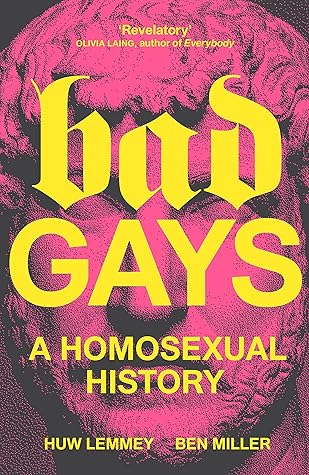More on this book
Community
Kindle Notes & Highlights
In Europe, throughout the Middle Ages sex between two men was known as sodomy. Unlike today, when sodomy means anal sex, for most of the mediaeval period it simply referred to sexual acts which would not or could not result in procreation. In fact, if a woman sucked a man’s dick in mediaeval England, she could be regarded as a sodomite. The reason, therefore, for the prohibition of sodomy was that it was unnatural, against God’s plan for mankind to ‘be fruitful, and multiply’.
Approximately one hundred thousand suspected homosexuals were arrested under the Nazi regime, of whom fifty thousand were sent to camps, where thousands died.
The Sacred Band of Thebes was a military unit made up of 150 pairs of male lovers and was regarded as the most elite unit in the Theban army, its soldiers being of unusual bravery and moral character.
there’s no escaping it, bottom-shaming is as old as European civilization itself, baked into the deep misogyny of patriarchal societies.
grew more distant from his wife,
‘The Nameless One’: I sought by love alone to go Where God had writ an awful no. Pride gave a guilty God to hell I have no pride – by love I fell.43
Public homosexuality and crossdressing were out; ‘masculine, discreet, manly Eros’ was on the other hand ‘wholly compatible’ with a Nazi racial consciousness.10 (Remember that when writing your Grindr profile!)
It might seem counterintuitive, given the title of the book, but we want to be clear that we profile these characters from history not because we want to condemn them – or, at least, not totally. A principle of understanding our status as gay people both within our culture and within wider society is this: we are not just the protagonists, but also the products of history. Not only do our rights come from prior political struggles that were full of faults and fault lines, but everything about what we conceive of gay to mean is also the product of centuries of accretions of meanings, roles, and
...more
Certain narratives within liberal gay circles like to paint the gay rights enjoyed in some Western countries not just as the inevitable product of the Western nation-state, a slow forward march towards rights and justice, but also as permanent, intractable, the end-point of progress. But the history of bad gays complicates that; our history is full of failed attempts at liberation, at new boundaries rolled back in public book burnings, of the ever-present threat of state suppression and social stigma. The value of your liberation may go down as well as up.
It is not always so easy, especially when subjects are marked by whiteness and other forms of power and privilege, to neatly separate the good from the bad, the right from the wrong.
The past is still with us; the revolutions of the queer future beckon.


